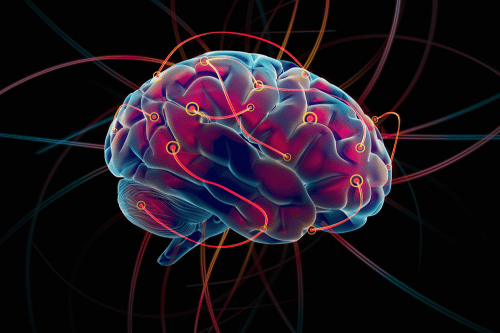What Is Cocaine Psychosis?
Cocaine psychosis is a severe mental health condition triggered by excessive or long-term cocaine use. It is classified as a form of substance-induced psychosis, where individuals experience distorted thinking and lose touch with reality due to drug exposure.
This condition is common among chronic cocaine users and those with cocaine dependence, especially when use spans an extended period. It is often marked by hallucinations, paranoia, and delusions, similar to symptoms found in primary psychotic disorders.
Distinguishing Between Cocaine Psychosis and Other Psychotic Disorders
Unlike schizophrenia or schizoaffective disorder, cocaine-induced psychosis is directly linked to the effects of cocaine use. Symptoms tend to resolve once the individual stops using the addictive drug, but some users may develop persistent psychotic features.
Distinguishing between cocaine-related psychosis and other mental disorders requires careful clinical evaluation. Medical professionals assess symptom duration, onset timing, and history of substance use disorder to identify the proper diagnosis.
Causes and Risk Factors
Cocaine Use and Its Impact on Brain Chemistry
Cocaine significantly alters brain chemistry by increasing dopamine levels. Dopamine is the brain’s feel-good chemical, and excessive amounts lead to overstimulation of the brain’s pleasure centers, resulting in addictive behavior and cocaine-induced psychiatric symptoms.
Over time, the brain’s natural dopamine production is disrupted. This imbalance of dopamine is a major cause of cocaine-induced psychotic disorder and contributes to distorted thinking, mood shifts, and cognitive impairment.
Role of Dosage and Duration in Triggering Psychosis
The dose of cocaine and duration of use are critical in the development of cocaine psychosis. A single high dose may cause acute psychosis, while prolonged use increases the risk of developing chronic psychiatric symptoms.
Heavy cocaine use over a long period is a key factor. The more frequently the addictive substance is used, the higher the risk of psychosis, especially among lifetime cocaine users.
Pre-Existing Mental Health Disorders
Individuals with pre-existing mental illnesses, including bipolar disorder, personality disorders, or affective disorders, are more likely to develop cocaine-induced psychosis. These conditions interact with cocaine’s effects to worsen psychiatric symptoms.
A genetic predisposition may also increase susceptibility. Those with a family history of psychotic disorders or substance use disorders are more prone to the development of cocaine-induced psychosis.
Symptoms of Cocaine Psychosis
Paranoia
Paranoia is the most common symptom of cocaine psychosis. Users may experience feelings of paranoia, believing others are spying on them, following them, or trying to harm them.
Hallucinations
Cocaine Hallucinations can be auditory, visual, or tactile. Auditory hallucinations may involve hearing voices or sounds that aren’t real. Visual hallucinations might include shadows or figures, while tactile hallucinations often involve the sensation of bugs crawling under the skin, known as cocaine bugs.
Delusions
Delusions are false beliefs that are strongly held despite contradictory evidence. These can be persecutory, where the user believes they are being targeted, or grandiose, where they believe they have special powers or significance.
Agitation and Erratic Behavior
Agitated behavior, violent behavior, and emotional instability are frequently observed. Individuals may become unpredictable and lose contact with reality, putting themselves and others at risk.
Types of Cocaine Psychosis
Acute Cocaine-Induced Psychotic Symptoms
This type appears quickly after high cocaine consumption, often during a binge. Symptoms include hallucinations, paranoia, and aggressive behavior, typically resolving after cessation of drug use.
Chronic Cocaine-Induced Psychotic Disorder
This form develops after long-term cocaine use and can persist even during periods of sobriety. It often mimics primary psychiatric disorders, requiring extensive professional treatment and psychiatric care.
Diagnosis and Recognition
Early Signs to Look For
Initial signs of cocaine psychosis include restlessness, excessive suspicion, lack of sleep, and strange beliefs. These warning signs suggest the brain is struggling with the effects of cocaine use and may soon lead to full-blown psychosis.
Professional Diagnostic Criteria
Diagnosis involves a review of cocaine use history, symptoms, and the absence of similar experiences before drug usage. Primary care practitioners or addiction specialists use standardized tools to confirm cocaine-induced psychosis rather than unrelated mental health issues.
Evaluations often involve checking for criteria for cocaine dependence, assessing mental state, and monitoring behavior patterns related to substance-induced psychosis.
Treatment Options
Detoxification Process
Cocaine detox is the first step in treating cocaine-induced psychosis. It helps manage withdrawal symptoms, such as irritability, fatigue, and mood swings, in a controlled setting. Detox allows the brain to stabilize without the drug.
Treat Mental Health Tennessee offers medical detox in a supportive environment. Our trained staff ensures safety and reduces discomfort during withdrawal from the addictive substance.
Rehabilitation Programs
After detox, cocaine addiction treatment plans may include inpatient treatment or outpatient treatment, depending on severity. Programs help patients confront addiction and underlying mental health issues contributing to drug use.
Our team at Treat MH Tennessee develops a comprehensive treatment plan for each individual. We address both the addiction to cocaine and psychotic features, including cognitive-behavioral therapy and relapse prevention strategies.
Mental Health Support and Therapy
Behavioral therapy helps individuals identify triggers, cope with cravings, and change harmful thought patterns. Family therapy involves loved ones in the recovery process, building support networks, and reducing the risk of relapse.
Antipsychotic medication may be used temporarily to manage psychotic symptoms, especially in cases of acute psychosis or cocaine-induced paranoia. These drugs balance excessive dopamine levels, aiding in symptom relief.
Treat MH Tennessee integrates evidence-based therapies, group counseling, and psychiatric support into each treatment track, creating a strong path to recovery.
Recovery and Prognosis
Importance of Ongoing Support
Recovery goals must include long-term support. Without continued therapy and community connection, the risk of relapse and return of cocaine psychosis symptoms increases.
Supportive care involves follow-ups, mental health check-ins, and access to counseling services. Co-occurring disorders must be monitored, particularly in those with underlying psychiatric disorders.
Success Stories and Statistics
Research shows that current cocaine users who receive treatment within the early stages of psychotic symptoms have a higher chance of long-term sobriety. Those who complete a full program and participate in aftercare services report fewer relapses and improved physical health.
Treatment for cocaine-induced psychosis is more effective when it includes both psychological symptoms and physical withdrawal care. Clinical trials continue to study brain-derived neurotrophic factors and other biological markers tied to recovery success.
Seeking Professional Help
Finding Specialized Treatment Centers
Individuals suffering from cocaine-induced psychosis should seek care from facilities experienced in both mental health treatment and addiction recovery. Programs that address comorbid substance use and mental illness are most successful.
At Treat MH Tennessee, we offer specialized care for patients with cocaine dependence. Our compassionate team helps clients rebuild their lives, manage psychiatric symptoms, and achieve sustainable wellness.
We understand the unique challenges of cocaine use disorder and provide tools for healthy living without reliance on addictive substances.
Emergency Intervention Steps
If someone experiences severe hallucinations, delusions, or agitated behavior, call emergency services immediately. These symptoms may escalate to violent behavior or physical harm.
Quick response and medical stabilization are critical. Once safe, the individual can transition into a structured treatment plan for cocaine addiction and co-occurring mental illnesses.
Final Thoughts
Cocaine psychosis is a life-altering condition tied to cocaine misuse and changes in brain chemistry. From auditory hallucinations to delusional thinking, it severely affects behavior and perception.
But with the right care, individuals can recover. Treatment approaches like cognitive-behavioral therapy, antipsychotic medication, and structured support systems help patients regain control and rebuild their lives.
At Treat Mental Health Tennessee, we specialize in healing both the brain and the person. Our evidence-based methods and caring professionals are here to guide clients through therapy, and lasting recovery. Whether you’re a current cocaine user, a loved one seeking help, or someone struggling with cocaine-related violent behaviors, reach out today to start your journey toward wellness.
FAQ's
Yes, in rare cases, a high dose can trigger psychosis during first-time use, especially if there are underlying risk factors.
Yes, combining cocaine with alcohol or stimulants significantly raises the risk of severe psychiatric symptoms.
Studies suggest younger individuals may be more susceptible due to brain development stages and risk-taking behavior.
Yes, chronic cases can result in lasting cognitive deficits and increased vulnerability to future mental health disorders.












